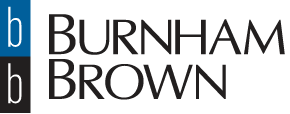August 2008
This is a follow up to our Client Alert titled "Tips For Avoiding The Pitfalls Of The Song- Beverly Credit Card Act."
The Song-Beverly Credit Card Act (California Civil Code 1747 et seq.) was designed to protect consumer privacy. In brief, the Act places limits on retailers' abilities to request or record personal information when dealing with credit card transactions.
On June 26, 2008, the California Court of Appeal limited the application of the Song-Beverly Credit Card Act to purchase transactions. The Court held that the act did not apply to return transactions. This allows retailers to take reasonable steps to protect itself from abuses relating to merchandise returns.
In Abasher v. Autozone, Inc., 164 Cal. App. 4th 332 (2008), a customer used his credit card to purchase a gas cap. When the gas cap allegedly did not fit his vehicle, the customer returned the item to the store and requested a credit card refund. The store clerk swiped the customer's credit card and provided him with a return voucher (a separate pre-printed form that requested his name, telephone number and signature.) The customer initially refused to provide the information. Ultimately, the customer relented and provided his telephone number.
A few weeks later, the customer filed a class action lawsuit alleging that Autozone's practice of requiring credit card customers to write their telephone numbers on return vouchers violated the Song-Beverly Credit Card Act (Civil Code 1747(a)(3)).
Civil Code 1747.08 (a) provides in pertinent part that retailers shall NOT do any of the following:
(1) Request, or require as a condition to accepting the credit card as payment in full or in part for goods or services, the cardholder to write any personal identification information upon the credit card transaction form or otherwise.
(2) Request, or require as a condition to accepting the credit card as payment in full or in part for goods or services, the cardholder to provide personal identification information, which the person, firm, partnership, association, or corporation accepting the credit card writes, causes to be written, or otherwise records upon the credit card transaction form or otherwise.
(3) Utilize, in any credit card transaction, a credit card form which contains preprinted spaces specifically designated for filling in any personal identification information of the cardholder.
The trial court in Los Angeles dismissed the lawsuit on the ground that those sections of the Song-Beverly Credit Card Act did not apply to merchandise returns. The California Court of Appeal upheld the dismissal. It reasoned that the term "credit card transaction" only applied to purchase transactions and did not apply to return transactions. In addition, the return voucher was a separate document from the return receipt showing the reversal of the credit card charge.
This ruling provides retailers with a reasonable means to safeguard against potential abuses in connection with merchandise returns. For example, personal information may be necessary to verify that the return transaction was bona fide and to prevent employee fraud. Further, if the product that was returned had been used or damaged prior to return, the merchant may have a legitimate need to contact the customer. As such, there were legitimate reasons for requesting the customer's telephone number, other than for mere marketing purposes.
Derek Lim is a senior associate at Burnham Brown. Mr. Lim's practice focuses on commercial litigation in both federal and state courts. He regularly counsels and represents entities in business related matters, including publicly traded companies and small businesses. He can be reached at 510.835.6718 or dlim@burnhambrown.com. Mr. Bodzin is a partner and trial attorney at Burnham Brown and is one of the leaders of its Business and Commercial Practice Group. Mr. Bodzin can be reached at 510-835-6833 and rbodzin@burnhambrown.com. For a copy of our earlier Client Alert, please refer to our website at www.burnhambrown.com.

